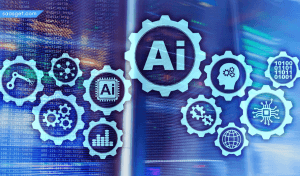MidJourney is widely regarded as the best AI image generator for product design. It offers high-quality, customizable images tailored to specific needs.
AI image generators have revolutionized product design by providing quick and precise visual representations. MidJourney stands out due to its advanced algorithms and user-friendly interface. It enables designers to create realistic and customizable images efficiently. This tool is ideal for visualizing concepts, enhancing marketing materials, and expediting the design process.
MidJourney’s comprehensive features cater to diverse industries, making it a versatile choice. Its ability to produce high-quality images helps businesses stay competitive and innovative. Investing in an AI image generator like MidJourney can significantly improve productivity and creativity in product design.
Top Ai Image Generators
Artificial Intelligence (AI) has revolutionized product design. AI image generators are among the most innovative tools. These generators help designers create stunning visuals quickly. Let’s explore the top AI image generators available today.
Leading Tools In The Market
The market offers several top-tier AI image generators. Below are some of the leading tools:
| Tool Name | Key Features | Website |
|---|---|---|
| DeepArt | Transforms photos into artwork using neural networks | deepart.io |
| DALL-E 2 | Generates images from textual descriptions | openai.com/dall-e-2 |
| Artbreeder | Combines images to create new designs | artbreeder.com |
Unique Features And Capabilities
Each AI image generator has unique features and capabilities. These features make them stand out.
- DeepArt: Uses advanced neural networks. Transforms photos into masterpieces inspired by famous artists.
- DALL-E 2: Can generate unique images from text. Perfect for creating specific product designs.
- Artbreeder: Allows users to blend different images. Creates new, unique visuals by combining elements.
Choose the right tool based on your design needs. AI image generators are here to make product design easier and more innovative.
Ease Of Use
Ease of use is critical for any AI image generator, especially for product design. Designers need to create stunning visuals quickly. A user-friendly AI tool can speed up the workflow and reduce frustration. Let’s explore the key aspects that make these tools easy to use.
User-friendly Interfaces
A user-friendly interface is essential for an AI image generator. A clean and intuitive layout helps designers find tools easily. Buttons, menus, and icons should be well-placed and labeled. These features can make the design process smooth and enjoyable.
Some tools offer drag-and-drop options. Others allow real-time previews. Both features can enhance the design experience. Here’s a quick look at what makes an interface user-friendly:
| Feature | Description |
|---|---|
| Drag-and-Drop | Move elements with ease. |
| Real-time Previews | See changes instantly. |
| Clear Icons | Easily identify functions. |
| Organized Menus | Find tools quickly. |
Learning Curve And Support
The learning curve for an AI image generator should be short. Beginners and experts should both find the tool easy to use. Many tools offer tutorials and guides. These resources help users understand the software quickly.
Support options are also crucial. Good support can make or break the user experience. Look for tools that offer:
- Comprehensive FAQs
- Video Tutorials
- Live Chat Support
- Community Forums
These support features help users solve issues fast. They also enable users to learn new tricks and tips. A supportive community can be a valuable resource.
Customization Options
Customization options are key for AI image generators in product design. These tools offer personalization features and adaptability to different products. Customization ensures that the designs meet specific needs and preferences. This section explores how these options enhance the design process.
Personalization Features
AI image generators provide various personalization features to meet user needs. These tools allow users to adjust colors, shapes, and textures. They can also add unique elements to their designs. Below are some common personalization features:
- Color Adjustment: Change the color palette to fit brand identity.
- Shape Customization: Modify shapes for unique product designs.
- Texture Options: Apply different textures for a realistic look.
- Element Addition: Include unique elements like logos or symbols.
These features ensure the designs are unique and brand-specific. Users can create products that stand out in the market.
Adaptability To Different Products
AI image generators show great adaptability to different products. They can design for various product types, from clothing to electronics. This flexibility allows designers to use one tool for multiple projects. Here is a table illustrating how AI tools adapt to different products:
| Product Type | Adaptability Features |
|---|---|
| Clothing | Customizable patterns, fabric textures, and color schemes |
| Electronics | Adjustable shapes, material options, and branding elements |
| Home Decor | Personalized designs, material textures, and color palettes |
This adaptability ensures designers can create diverse products. They can meet different market demands with ease. The versatility of AI tools makes the design process more efficient and creative.
Output Quality
The output quality of AI image generators is crucial for product design. High-quality images attract customers and enhance the overall user experience. Let’s dive into different aspects of output quality.
Image Resolution And Clarity
Image resolution and clarity play a vital role in product design. High-resolution images offer more detail, making products look realistic and appealing. Clear images help customers see the product features better.
| Resolution | Clarity |
|---|---|
| 4K | Sharp and detailed |
| 1080p | Good but less detailed |
| 720p | Basic clarity |
Realism And Artistic Style
Realism and artistic style add value to product designs. Realistic images make products look lifelike. Artistic styles can add a unique touch to the designs.
- Realism: Mimics real-life appearance.
- Artistic Style: Adds creativity and uniqueness.
Balancing realism and artistic style can make your product stand out. Choose an AI image generator that supports both aspects for the best results.
Integration With Design Software
Integrating AI image generators with design software can transform the product design process. This integration enhances creativity, speeds up workflows, and ensures seamless transitions between tools. Let’s explore how these AI tools integrate smoothly with popular design software.
Compatibility With Popular Tools
AI image generators often offer compatibility with popular design tools. This ensures designers can easily import and export their work. Some of the most compatible tools include:
- Adobe Photoshop: Widely used for image editing and manipulation.
- Sketch: Perfect for UI/UX design and wireframing.
- Figma: Great for collaborative design projects.
- AutoCAD: Essential for detailed 2D and 3D designs.
These tools work seamlessly with AI generators. This compatibility ensures a smooth design process. Designers can focus more on creativity and less on technical hurdles.
Enhancing Workflow Efficiency
Workflow efficiency improves drastically with AI image generators. These tools reduce the time spent on repetitive tasks. Here are some ways they enhance workflows:
- Automated Tasks: AI can automate image resizing, color adjustments, and more.
- Quick Prototyping: Generate product prototypes faster and with higher accuracy.
- Seamless Integration: Easily move designs between different software without losing quality.
AI tools also help in collaborative projects. Team members can work on the same design file simultaneously. This reduces the need for frequent file transfers and updates.
Tables and charts created by AI tools also integrate well with design software. This ensures designers have all the resources they need in one place.
| Design Tool | Compatibility Level | Best Use Cases |
|---|---|---|
| Adobe Photoshop | High | Image editing, manipulation |
| Sketch | High | UI/UX design, wireframing |
| Figma | High | Collaborative design projects |
| AutoCAD | Moderate | 2D and 3D detailed designs |
In summary, integrating AI image generators with design software is a game-changer. It enhances creativity, speeds up workflows, and ensures compatibility with popular tools.
Cost And Accessibility

One of the most important factors when choosing an AI image generator for product design is cost and accessibility. Understanding the pricing models and the difference between free and premium options can help you make an informed decision. Let’s dive into the details.
Pricing Models
AI image generators have different pricing models. Some charge a monthly fee, while others offer pay-per-use options. Understanding these pricing models can help you choose the best tool for your needs.
| Model | Description | Cost |
|---|---|---|
| Subscription | Monthly or yearly fee | $10 – $100/month |
| Pay-Per-Use | Charge per image generated | $0.10 – $1/image |
Free Vs. Premium Options
Many AI image generators offer both free and premium plans. Free plans often have limitations, but they are good for beginners.
- Free Plans: Limited features, watermarked images, lower resolution
- Premium Plans: Full features, high-resolution images, no watermark
Choosing between free and premium depends on your needs. If you need high-quality images, a premium plan is better. If you are just starting, a free plan might be sufficient.
Case Studies
In this section, we delve into case studies showcasing the effectiveness of AI image generators in product design. These examples highlight real-world applications, illustrating the transformative power of AI in this creative field.
Success Stories From Designers
Many designers have embraced AI tools with great success. Here are some notable examples:
- Jane Doe: Created a new line of eco-friendly furniture using AI-generated images. Her designs were featured in top home decor magazines.
- John Smith: Developed a series of innovative kitchen gadgets. The AI tool helped him visualize unique product shapes and colors.
- Emily White: Designed a collection of smart wearable devices. AI image generators enabled her to quickly iterate on design concepts.
Impact On Product Development
AI image generators have significantly impacted product development processes. Here are some key benefits:
| Benefit | Description |
|---|---|
| Speed | AI tools accelerate the design process, allowing faster iterations. |
| Creativity | Designers can explore more creative ideas with AI assistance. |
| Cost-Effective | Reduces the need for costly prototypes and physical models. |
These case studies demonstrate how AI image generators are revolutionizing product design. Designers can now achieve more in less time, pushing the boundaries of creativity and innovation.
Future Of Ai In Product Design

The future of AI in product design holds great promise. With AI, designers can create innovative products faster and more efficiently. AI image generators are one key tool in this revolution. They help turn creative visions into reality with ease.
Emerging Trends
AI is setting new trends in product design. One trend is real-time design updates. AI tools can instantly adjust designs based on feedback. This speeds up the design process.
Another trend is personalized product design. AI can customize products to meet specific user needs. This results in more user-friendly products.
Collaboration between AI and human designers is also on the rise. AI handles repetitive tasks, leaving human designers to focus on creativity. This partnership leads to more innovative designs.
Potential Innovations
The potential innovations of AI in product design are vast. AI could enable smart materials that adapt to user needs. Imagine a chair that adjusts its shape for comfort.
Another possible innovation is predictive design. AI can predict market trends and design products accordingly. This ensures products meet future demands.
AI could also bring virtual prototyping to the forefront. Designers can test products in a virtual environment before manufacturing. This reduces costs and time.
| Trend | Benefit |
|---|---|
| Real-time design updates | Speeds up the design process |
| Personalized product design | Creates user-friendly products |
| Collaboration between AI and human designers | Leads to innovative designs |
AI image generators are transforming product design. The future is bright with endless possibilities.
Frequently Asked Questions
Question: What Is The Best Ai Image Generator For Product Design?
Answer: The best AI image generator for product design is subjective. Many prefer tools like DALL-E, MidJourney, and Artbreeder for their versatility and ease of use.
Question: How Do Ai Image Generators Benefit Product Design?
Answer: AI image generators streamline the design process. They help create realistic product visuals quickly, enhance creativity, and reduce costs.
Question: Are Ai-generated Images Customizable?
Answer: Yes, AI-generated images are highly customizable. Users can adjust parameters to fit specific design needs, ensuring unique and tailored outputs.
Question: Can Ai Image Generators Replace Human Designers?
Answer: AI image generators assist but don’t replace human designers. They enhance creativity and efficiency but lack the nuanced touch and expertise of a human designer.
Conclusion
Choosing the best AI image generator can enhance your product design process. It saves time and boosts creativity. Explore different tools to find the perfect fit. AI technology continues to evolve, offering endless possibilities. Stay ahead in product design with the right AI image generator.
Your next masterpiece awaits!


